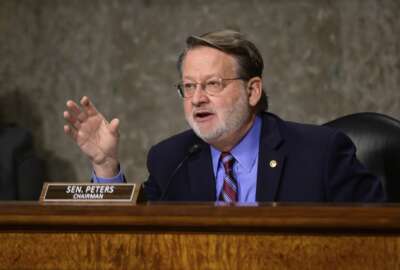GSA sets goals to shrink federal office space post-COVID, but needs to address maintenance backlog
The General Services Administration sees a unique opportunity to reduce the federal government’s office footprint over the coming years, as agencies reconside...
The General Services Administration sees a unique opportunity to reduce the federal government’s office footprint over the coming years, as agencies reconsider their office space needs following the COVID-19 pandemic.
GSA Administrator Robin Carnahan told members of the House Transportation and Infrastructure Committee Tuesday that 40% of its leases will expire over the next four years, giving GSA a window to shift tenant agencies to properties the government owns.
Carnahan said agencies could save $2 billion annually if they take advantage of this opportunity. However, GSA is calling on Congress for help to address a $9.5 billion backlog of maintenance projects at federal buildings.
Since fiscal 2018, GSA has already renegotiated more than 1,100 leases to below-market rates, and moved agencies from more than 200 leased spaces to federally owned space.
GSA saved $4.5 billion in lease costs through this consolidation, but warned too many federal buildings have fallen into disrepair because of a lack of consistent funding for maintenance.
“That’s only going to happen if the space is maintained well, and agencies want to go there, and it’s the type of space that meets their mission needs. This is just a unique confluence of events, where we have leases coming up, we have agencies rethinking how much space they need. This is a smart time to invest,” Carnahan said.
Chairwoman of the Subcommittee on Economic Development, Emergency Management, and Public Buildings Dina Titus (D-Nev.) said more than half of the federal buildings in GSA’s portfolio are over 50 years old, and more than a quarter of them are over 75 years old. She also said GSA needs to ensure GSA designs new federal buildings to withstand challenges from climate change.
“We can’t just build back better. We have to include resiliency considerations in the buildings that we construct in the future,” Titus said.
Nina Albert, the commissioner of GSA’s Public Buildings Service, said agency officials have told GSA they expect to reduce their office space needs anywhere from 20%-to-50% following the pandemic. She said those projects are “in line with GSA’s own expectations” on the future of the federal workplace.
Albert told lawmakers GSA expects to be able to shrink the federal real estate footprint following the pandemic by making better use of its existing real estate holdings and reducing its reliance on leased space. However, she said progress on this front will require an “ongoing conversation” from tenant agencies.
“No one is prepared to make a hardline decision right now, because many customers are waiting to get back into full reentry mode, see how employees are starting to use space and what the hybridized model looks like for their agency and for their people,” Albert said.
GSA is creating opportunities for agencies to take advantage of workplace flexibilities made possible through the federal workforce embracing telework.
The agency in September awarded a first-of-its-kind contract to WeWork and four other vendors — LiquidSpace, Deskpass, Expansive (formerly Novel Coworking) and The Yard — to provide flexible coworking spaces to federal employees nationwide.
The contract awards mark just one pillar of GSA’s Workplace 2030 initiative, which reimagines how and where federal employees will get their work done.
Under this initiative, GSA expects to provide dedicated coworking space to other agencies at its headquarters, including individual workstations and conference rooms.
GSA is also pursuing a “home office in a box” concept as part of Workplace 2030, giving workers the option to furnish a home office with the equipment needed to keep teleworking.
“There’s not a lot of times in government certainly that there is a seismic shift in how people are thinking about how they deliver service, and we’re at the moment. So the question is whether we’re going to be smart and take advantage of it. The way we do that is we create incentives for people to move into shared space,” Carnahan said.
GSA hosted a virtual event last week with 40 agency customers interested in learning more about federal coworking spaces.
Albert said the federal coworking space contracts excel at meeting agencies’ short-term office space needs and address the “great experiment” of agencies prioritizing flexibility and mobility for their employees. She said the contract also emphasizes the need for federal employees to have collaborative space when working back in the office.
“We are going to have to evolve our own spaces, and having access to co-working space allows agencies to decide what kinds of spaces they think they need without the federal government making an upfront capital investment in delivering that kind of space. So we can use this as an opportunity for the agencies to come back to us, say, ‘Hey, I’ve been using a lot of this kind of space, over that kind of space, and that’s what I want in the future,'” Albert said.
However, not all of the subcommittee members see a remote federal workforce as an asset. Rep. Beth Van Duyne (R-Texas) said long wait times for her constituents to get help from the IRS, the Social Security Administration and U.S. Citizenship and Immigration Services suggest that federal employees are “not being effective while working remotely.”
“Unfortunately, what my constituents and I have seen is a nonresponsive federal workforce,” Van Duyne said.
Copyright © 2024 Federal News Network. All rights reserved. This website is not intended for users located within the European Economic Area.
Jory Heckman is a reporter at Federal News Network covering U.S. Postal Service, IRS, big data and technology issues.
Follow @jheckmanWFED






